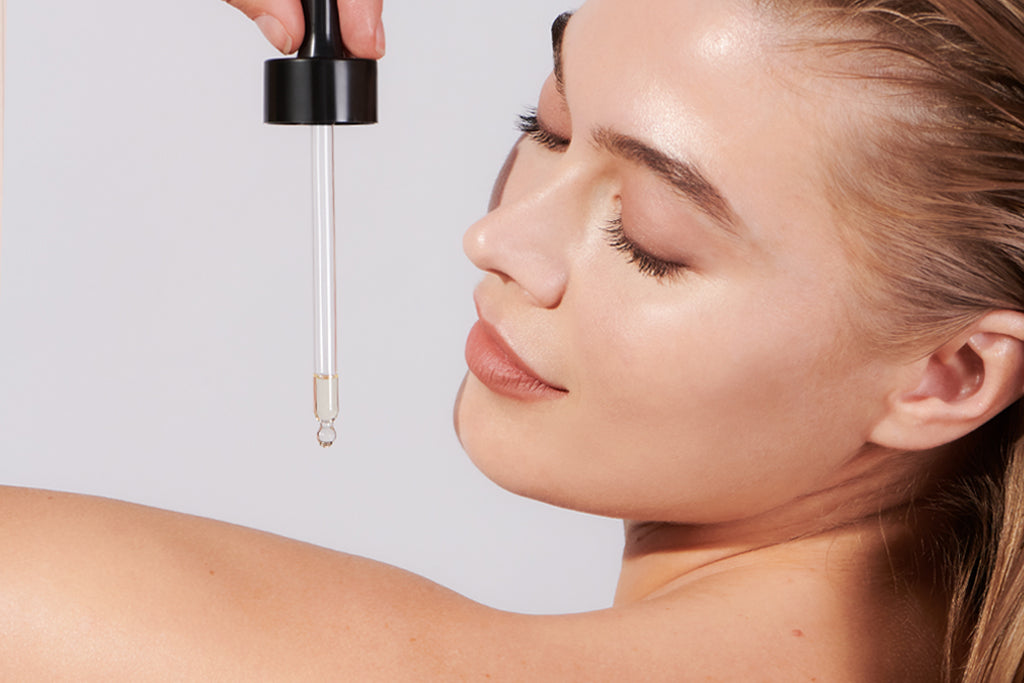How does CBD skin care help inflammation

We’re fortunate to be living in a time when the benefits of CBD oil are becoming more widely accepted. In skincare, cannabidiol-infused products are becoming increasingly available, and their popularity is growing. But many people don’t understand what CBD is supposed to do when it comes to caring for your skin. Unlike other ingredients that have been widely publicized, the benefits of CBD still have a certain mystique surrounding them. The controversial history of cannabis in society has led to some people viewing CBD as an ingredient to be cautious about.
We’re here to dispel the myths about CBD skincare and explain what it can do to help take your skincare routine to the next level. We’re looking at how CBD really works in skincare, how it helps to combat inflammation, which common skin complaints it can address, and how quickly you should see results after you start using a CBD-infused skincare product.
Is CBD really good for your skin?
The reality is that CBD in skin care is relatively new, so research is limited on how CBD can really help your skin. What we do know is that so far, researchers have found that CBD is helpful in treating inflammatory skin conditions, including eczema. A study published in 2020 found that patients who suffered from eczema who applied a topical containing CBD saw a reduction in their discomfort levels, the areas that were treated became less itchy, and their emotional wellbeing improved after sustained use.
Researchers have also found that CBD could be a helpful tool in treating acne. The research concluded that the “lipostatic, antiproliferative, and anti-inflammatory effects, CBD has potential as a promising therapeutic agent for the treatment of acne vulgaris.” In plain terms, it means that the way CBD.” What that means in plain English is that CBD acts to change the way specific processes in your body work, including inflammation, which in turn alleviates the symptoms of acne.
Does CBD help skin inflammation?
In short, yes, it does. Though it’s still not 100% clear how CBD helps reduce inflammation, researchers believe it’s an ingredient of interest when it comes to treating skin inflammation. Clinical studies have found that ingesting CBD (as a supplement or as an oil) has an effect on inflammatory systems by modifying the way your body produces cytokines. These proteins are secreted by specific cells in your immune system and have a knock-on effect on other cells. So, in clearer terms, CBD acts as a break in a chain reaction that causes inflammation, sort of like moving a domino out of line and stopping the next group of dominos from falling.
While the exact processes behind CBD’s effects on inflammation are still being explored, clinical studies have found that skin inflammation can definitely be improved by applying high-quality CBD to affected areas of skin. So far, research has been carried out in relation to eczema, psoriasis, and acne vulgaris, though other conditions may benefit from the use of CBD in skincare, too.
How fast does CBD work for inflammation?
The speed at which you will see results really depends on how you apply CBD and what you’re trying to treat. If you apply CBD to your skin, the effects can be felt within as little as 15 minutes. This being said, your skin will take some time to heal, particularly in the case of broken skin, which you can get with most inflammatory skin conditions. When starting to use CBD, the critical thing to remember is to go slow and build up. It’s often difficult to work out just how much CBD is in a dose of skincare product, so building up and seeing how your skin reacts is never a bad idea. If you’re considering taking a supplement that contains CBD to combat inflammation, then similar guides apply, start low and increase slowly.
Remember, CBD isn’t a psychoactive substance, and it’s considered safe as long as you ensure you’re buying it from a reputable brand.
The bottom line
While CBD in skincare is still pretty new, it’s already making waves: CBD’s ability to reduce inflammation is really exciting! It can help address a range of skincare concerns from redness to acne and eczema. It’s important to remember that any skincare product you use will end up in your blood flow, so looking for high-quality ingredients is always essential. Look out for brands that focus on using organic, full-spectrum CBD to ensure the product is safe for use on your skin. It can also be worthwhile gradually introducing new products to your routine, particularly if you’re struggling with an inflammation-related skin condition such as eczema or psoriasis. This will allow you time to see how your skin reacts to the product and gauge whether you should keep using it at the same frequency or if it tolerates it well enough for you to use it more regularly.



